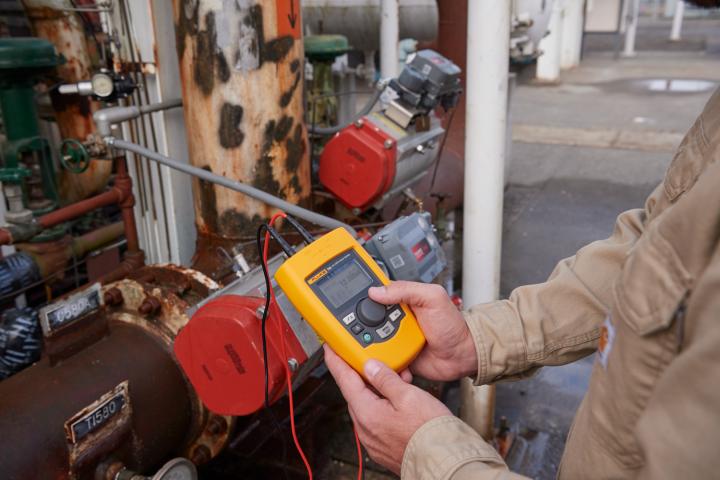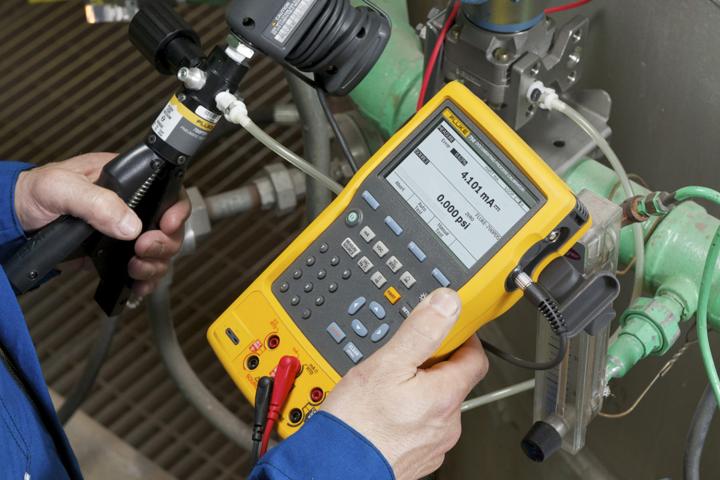
Calibration tools and instruments
Welcome!
The Fluke Calibration web address has changed.
Please note: Fluke Calibration content is available in english only for your region.
Here is a guide on what's new.
Calibration Tools are used to ensure precision and accuracy across a wide range of industries. Fluke offers a comprehensive array of top-tier calibration tools to calibrate in many different disciplines offering precision instrument calibration and metrology hardware and software for electrical, temperature, pressure, flow, and RF measurements. Use these top-of-the-line devices to compare and adjust measuring devices to ensure they operate within their specified limits.
Calibration instruments and software from Fluke Calibration are found in calibration facilities around the world, including National Metrology Institutes, that demand the highest levels of performance and reliability for their calibration equipment, backed by state-of-the-art metrology and uncompromising support.
What instruments are used for calibration?
Choosing the right instrument for calibration depends on the specific type of device you're calibrating, or the unit under test (UUT). Common tools include bench multimeters and multi-product calibrators for electrical calibration, pressure calibrators for pressure devices, calibration baths for temperature sensors and indicators, and many more. Fluke offers a wide variety of these instruments, each designed to provide reliable and accurate calibrations.
No matter your calibration needs, Fluke has the right tool for the job, ensuring precise and reliable measurements every time.
Offerte aanvragenProceskalibrators

Elektrische kalibratie

RF-kalibratie

Gegevensverzameling en algemene test

Temperatuurkalibratie

Vochtigheidskalibratie

Drukkalibrators

Stroomkalibratie

Fluke Calibration-software


Types of Calibration
There are several types of calibration, each tailored to a specific kind of device or measurement. These include:
- Electrical Calibration: This type of calibration is used for devices that measure or generate electrical parameters. Fluke electrical calibrators and multi-product calibrators are designed to maximize throughput with high accuracy and precision.
- Temperature Calibration: This calibration is for temperature sensors and indicators. Fluke provides high-precision temperature calibrators for this purpose.
- Pressure Calibration: This type of calibration is used for pressure gauges and transducers. Fluke pressure calibrators are designed for both simplicity and accuracy.

- Software Calibration: Calibration software is used to manage calibration data, asset and inventory data, and compliance data. Fluke has software solutions to help automate virtually every measurement discipline.
- RF Calibration: This calibration is used for devices that work with radio frequencies. Fluke provides reliable solutions for accurate RF calibration.
- Flow Calibration: Essential for devices measuring fluid or air flow, Fluke flow calibrators ensure accurate readings.
- Humidity Calibration: For devices that measure humidity, Fluke offers humidity calibration tools to ensure your readings are precise and reliable.
- Process Calibration: For process instrumentation calibration on the job site in a variety of environments.

What are commonly used calibration methods?
Commonly used calibration methods include traceable calibrations, which involve comparing a device's measurements to a known standard that has been traced directly back to a national or international measurement standard. Another calibration method is ratio-matching. This involves comparing the UUT measurements to those of a reference device that has already been calibrated to a known standard. There are also manufacturer calibrations, which are performed by the device manufacturer. No matter what method is used, a Fluke Calibration instrument is likely to be in the chain of instruments traced to the SI.

When should you calibrate your instrument?
It's important to regularly calibrate your instruments to ensure accurate and reliable measurements. The frequency of calibration depends on several factors, like manufacturer specifications, type of instrument, how frequently it's used, and the environment in which it's used. In general, instruments should be calibrated at least once a year, but some may require more frequent calibrations. If you notice any changes in your instrument's performance or accuracy, it's important to get it calibrated. Fluke Calibration instruments are used in calibration labs and facilities around the world, relied on by quality engineers, calibration technicians, and metrologists to instill confidence in the measurements that are critical to their organizations for quality, safety, reliability, and cost.